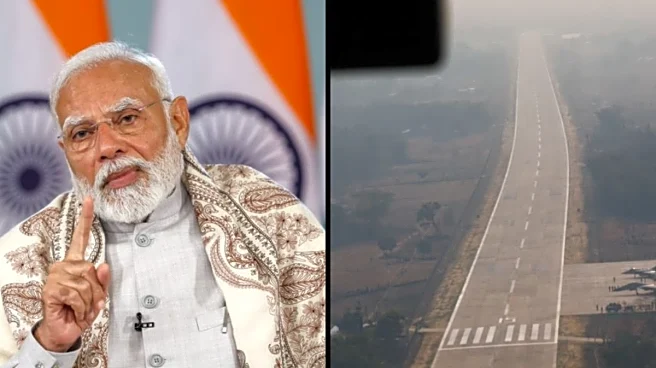What is the story about?
As the year-end holiday season approaches, experts warn travellers to carefully consider travel insurance due to high disruption risks from crowded airports, winter weather, and complex itineraries. Coverage for delays, cancellations, and lost luggage is seen as essential rather than optional.
Why travel insurance matters?
Nochiketa Dixit, MD of Industries at EDME Insurance Brokers, explains that during the holiday rush, “people usually have to take care of rebooking costs, extra accommodation, and the loss of essential belongings, and these out-of-pocket expenses can escalate before they realize it. Travel insurance offers a stable financial cushion during disrupted journeys.”
Arun Ramamurthy, Co-founder of Staywell.Health, adds that for travellers with multiple connections or international itineraries, insurance acts as a “safety net” against systemic uncertainties, including airline delays and weather-related cancellations.
Ajay Shah, Head – Distribution at Care Health Insurance, points out that coverage ensures travellers are shielded from substantial unplanned expenses, maintaining continuity of travel plans.
Common gaps in coverage
Experts caution that last-minute travellers often overlook important policy details.
Dixit notes gaps such as:
Ramamurthy highlights additional gaps:
To avoid surprises, travellers should carefully review policy inclusions, trigger conditions for claims, and documentation requirements.
Balancing cost and coverage
When selecting a policy, experts advise focusing on overall value rather than the lowest premium.
Dixit says slightly higher premiums often provide broader, more reliable protection during peak travel periods.
Shah adds that travellers should weigh premiums against potential financial risks, such as last-minute rebooking costs, medical emergencies, or loss of luggage.
Ramamurthy notes that travellers with complex itineraries or international travel may benefit from higher-tier policies, while those on shorter trips with a single carrier may not require additional coverage.
Key clauses to check for winter travel
Before buying a policy, experts recommend examining:
Understanding these clauses, including exclusions, sub-limits, and documentation requirements, ensures travellers select a policy suited to their needs.
Why travel insurance matters?
Nochiketa Dixit, MD of Industries at EDME Insurance Brokers, explains that during the holiday rush, “people usually have to take care of rebooking costs, extra accommodation, and the loss of essential belongings, and these out-of-pocket expenses can escalate before they realize it. Travel insurance offers a stable financial cushion during disrupted journeys.”
Arun Ramamurthy, Co-founder of Staywell.Health, adds that for travellers with multiple connections or international itineraries, insurance acts as a “safety net” against systemic uncertainties, including airline delays and weather-related cancellations.
Ajay Shah, Head – Distribution at Care Health Insurance, points out that coverage ensures travellers are shielded from substantial unplanned expenses, maintaining continuity of travel plans.
Common gaps in coverage
Experts caution that last-minute travellers often overlook important policy details.
Dixit notes gaps such as:
- Trip value not fully insured
- Baggage delay benefits missing
- Pre-existing medical conditions undisclosed
- Exclusion of adventure or winter activities
Ramamurthy highlights additional gaps:
- Delay thresholds and notice requirements from airlines
- Restrictions on lost or stolen high-value items
- Coverage for missed connections when using multiple carriers
To avoid surprises, travellers should carefully review policy inclusions, trigger conditions for claims, and documentation requirements.
Balancing cost and coverage
When selecting a policy, experts advise focusing on overall value rather than the lowest premium.
Dixit says slightly higher premiums often provide broader, more reliable protection during peak travel periods.
Shah adds that travellers should weigh premiums against potential financial risks, such as last-minute rebooking costs, medical emergencies, or loss of luggage.
Ramamurthy notes that travellers with complex itineraries or international travel may benefit from higher-tier policies, while those on shorter trips with a single carrier may not require additional coverage.
Key clauses to check for winter travel
Before buying a policy, experts recommend examining:
- Delay thresholds – minimum wait time before coverage applies
- Weather-related exclusions – policies may exclude known weather events
- Baggage limits – maximum insured value of belongings
- Missed connection coverage – critical during busy holiday periods
- Natural disaster and airport closure clauses – relevant for winter travel
Understanding these clauses, including exclusions, sub-limits, and documentation requirements, ensures travellers select a policy suited to their needs.
/images/ppid_59c68470-image-176433256620256723.webp)







/images/ppid_a911dc6a-image-177107062796921011.webp)



/images/ppid_a911dc6a-image-17710700586131340.webp)
/images/ppid_a911dc6a-image-177107002875928030.webp)
/images/ppid_a911dc6a-image-177107008754197673.webp)